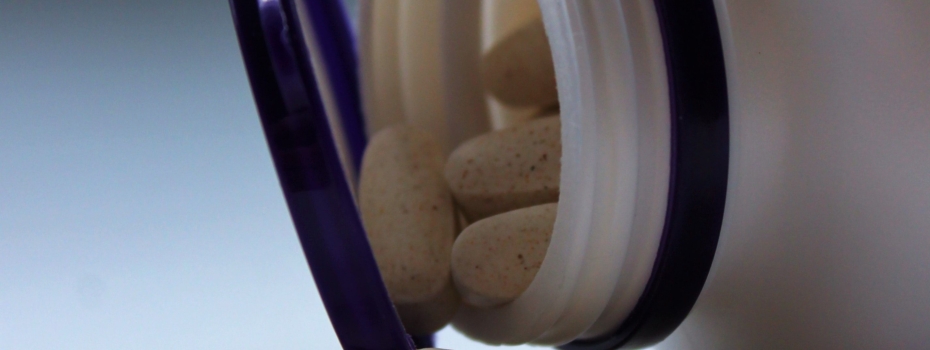Vitamins and supplements that support fertility

It's important to get the right balance of vitamins before you conceive to enable you to have a healthy pregnancy. Sometimes that's not possible just through food alone so we may recommend some key supplements especially if you are suffering from oxidative stress.
Controlling oxidative stress
Oxidative stress is when your body is under attack from damaging free radicals. These can interfere with proteins and lipids in cells, and even DNA.
During normal metabolic processes, the body’s cells actually produce those damaging free radicals. However, cells also produce antioxidants that neutralise these free radicals, so in general, the body is able to maintain a balance between antioxidants and free radicals. When this is out of balance it's called oxidative stress. Several factors can contribute to oxidative stress and excess free radical production. These factors can include:
- diet
- lifestyle
- certain medical conditions such as diabetes and inflammatory disorders
- environmental factors such as pollution
Uncontrolled oxidative stress can accelerate the ageing process and may impact your fertility, so for the best chance of conception and a safe, healthy pregnancy, a balanced diet rich in antioxidants is a high priority. The most important are:
Folate - Folate is a B Vitamin found in legumes, asparagus, beets, eggs, and leafy vegetables amongst others. While there are many dietary sources of folate, it is so important in the development of your baby’s brain and spinal cord that we recommend that all women looking to become pregnant also take either a folic acid supplement (which is the man-made equivalent of folate) or methylfolate, (aka MTHF) which are both more easily absorbed in the body. The latter is generally recommended if you have the common MTHFR genetic mutation.
Alpha-lipoic acid is an antioxidant that is available in low amounts in many vegetables, but supplementation may be required to help improve your fertility. Alpha-lipoic acid has been shown to improve egg maturation and embryo viability, particularly if you have PCOS.
Vitamin C – an antioxidant important within the ovary itself. As the developing egg needs Vitamin C to mature and ovulate, more vitamin C is used up around the time of ovulation.
Vitamin E – an antioxidant that supports the development of the uterine lining pre-embryo transfer and promotes circulation to the placenta.
N-acetlcysteine - this can also be useful if you have high homocysteine levels (which can cause heart disease), such as those with MTHFR genetic variations. It also has been shown to also reduce the risk of miscarriage in patients with recurrent miscarriage.
Myo-Inositol - this has powerful antioxidant qualities and may be useful for women with PCOS or insulin resistance, or if you have had an IVF cycle with a high number of immature eggs, are not ovulating regularly, or unexplained recurrent miscarriage.
Mixed carotenoids. Vitamin A (retinoid) is involved in creating DNA. In small amounts, it is essential for healthy fetal development, particularly for the immune system and eyes. However, you should avoid taking too much Vitamin A so keep a close eye on how much supplementation you need.
Coenzyme (Q10) – also called ubiquinol an important antioxidant and ‘energy nutrient’ within every cell.
Manganese – involved in enzyme functions that have antioxidant effects and transfer genetic information.
Zinc – one of the most important nutrients for a healthy reproductive system. Involved in sexual development, ovulation, and the menstrual cycle.
Selenium – an antioxidant that supports normal conception.
Omega-3 fatty acids – improving omega-3 fatty acids ensures that a woman’s fat tissue stores retain a reserve of these fatty acids for the developing fetus, healthy pregnancy and optimally fed newborn
B-Vitamins – Vitamin B12 and B6, are significant for the reproductive system. B12 is often lacking in vegan diets so if you are following plant-based eating you should consider supplementation.
Melatonin - which may support egg quality in patients with endometriosis.
Watch outs
Biotin or Vitamin B7 can be found in high doses in hair and nail supplements and can interfere with AMH testing so it's best to stop taking these if you are having fertility tests. B7 levels in pre-conception supplements such as Elevit, however, are perfectly safe.
This is not an exhaustive list and of course, everyone is different. Your Flinders Fertility doctor will run tests and work with you to assess which of these you should take, and when to take them, for they are required at different times during your treatment.
In order to achieve a safe, healthy pregnancy it is important that you do not take any product that could interfere with any fertility treatment being undertaken, so make sure that you consult with your fertility doctor and advise them of which supplements you are taking.
Want to find out more?
If you have any further questions, you can arrange a chat with one of our patient care team.
For more health and wellness information on how to increase your chances of conception, check out our fertility news page, or download our e-book below.

